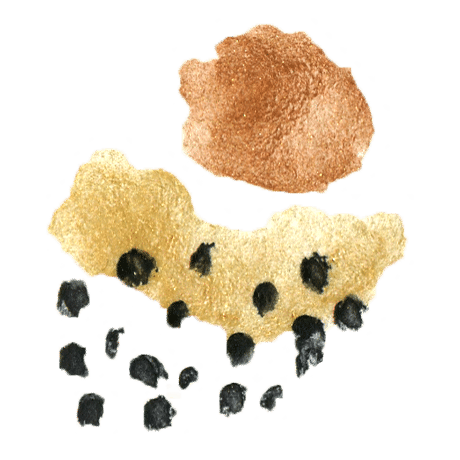Ellen Heed and Kimberly Johnson, co-founders of STREAM School for Postpartum Care talk about what’s missing in the dialogue about sex postpartum, the biological realities of the postpartum time, and how these affect libido.
“Postpartum can be an initiation into deeper sexual potential.”
What Ellen Shares
- What she is hearing from postpartum women in her office.
- How attachment, or lack thereof, between parents affects the dynamics of the family and the health of the child.
- What’s missing in the dialogue around sex postpartum.
- Biological realities of the postpartum time and how these affect libido.
- The need for a redefinition of a woman’s sexual self after birth.
- How sex can improve after the birth of a child.
- The four domains of pelvic health and how these affect libido, sexual function, and a woman’s overall feeling of physical wellbeing.
What You’ll Hear
- What Ellen and Kimberly are hearing from postpartum women (1:30)
- The need for a new sexual definition and the challenge of finding it (2:30)
- Why we should care about this issue (4:11)
- The importance of occupying your own pleasure and not losing oneself entirely to mothering (4:45)
- The difference between managing child rearing in an extended family network vs. staying isolated in a parent-parent bubble (5:30)
- How family dynamics are reorganized after the birth of a child into a pyramid (8:00)
- The importance of maintaining the bond between parents instead of only with the baby (9:26)
- How only bonding with the baby can put too much pressure on the baby’s system (10:00)
- “There is no equality, biologically, when it comes to birth and parenting.” (10:48)
- The cultural confusion around “all things being equal,” and the false democratization in family dynamics (11:00)
- Kimberly shares an example from her own life when the natural family hierarchy was out of balance (13:00)
- Children need domination and appropriate hierarchy to feel safe (14:50)
- Children need the circuit between their parents to be complete in order to ground themselves (16:15)
- What Ellen and Kim are NOT hearing in the dialogue around postpartum sex (17:00)
- Breastfeeding as an example of hormonal competitive inhibition – how prolactin subdues estrogen and consequently sexual desire in favor of lactation (17:45)
- How neurotransmitters are also preferentially releasing dopamine in contact with the child instead of the partner (19:00)
- The importance of redefining the sexual self in the postpartum period (19:30)
- The difference between “hot sex” and “warm sex” (19:49)
- How the pleasure response in the brain that once was triggered by the partner becomes subsumed by the bond with the baby (20:20)
- How scientists resist applying research on maternal behavior in animals to humans (21:40)
- How birth trauma effects the mothers nervous systems ability to move smoothly from bonding with the baby back to bonding with their partner (24:14)
- How much chemical information comes off of our bodies (25:40)
- The difference between hormones and pheromones (26:36)
- How women put pressure on themselves to return to sex after the birth in spite of these biological changes (28:04)
- The importance of acknowledging the biochemical realities in the postpartum period, particularly in breastfeeding (29:00)
- Couples need to have the full conversation about how birth and breastfeeding is going to change the sexuality between them (31:08)
- Women need to redefine their sexual identity…who they are as sexual beings that grow and change after the birth of a child (31:24)
- How women put too much pressure on themselves to return to a sexual norm that will never exist again (32:05)
- Good news! Sex can be better after birth (32:19)
- Laura Gutman’s concept of the feminization of sex (32:53)
- Changing old sexual patterns after birth (33:38)
- The importance of communicating about sex (35:00)
- What men want in the postpartum period (35:29)
- What’s possible in sex due to the physiological changes from birth; increased capacity for arousal, engorgement, ejaculation, etc (37:08)
- The postpartum period can be an initiation into a deeper level of sexual potential (38:15)
- The four domains of pelvic health and how they effect sex postpartum (38:55)
- Examples of how scar tissue can effect sexual function and the functions of the pelvic organs (39:10)
- Ways the pelvic bones, organs, and muscles can be misplaced after birth and how this effects sexual function and pleasure (43:10)
- What the new ACOG guidelines about postpartum care don’t include (44:45)
- The importance of readjusting the psoas muscle postpartum (45:50)
- The long history of reorganizing pelvic bones and organs in several massage traditions (46:50)
- How biochemistry effects sex postpartum (47:48)
- Proper nutrition specific to the postpartum body (48:10)
- The effect of this increased nutrition on the breastfeeding child (48:50)
- The challenges facing vegetarians and vegans when healing postpartum (50:10)
- Pain in the introitus and its connection to the emotional body (51:03)
- Emotion is the fourth domain of pelvic health (52:05)
- “The narrative of the birth may be one way and what the body has to say about it may be completely different.” (52:45)
- The incidence of pelvic floor dysfunction after a mechanical delivery (53:35)
- The importance of physical contact with appropriate tracking when working with the pelvic floor (54:24)
- How quickly the tissue can change when it’s given a chance to speak for itself (55:00)
- Sometimes recovery takes a long time and sometimes it doesn’t (55:50)
- How possible it is to address these domains of pelvic health without surgery (56:28)

